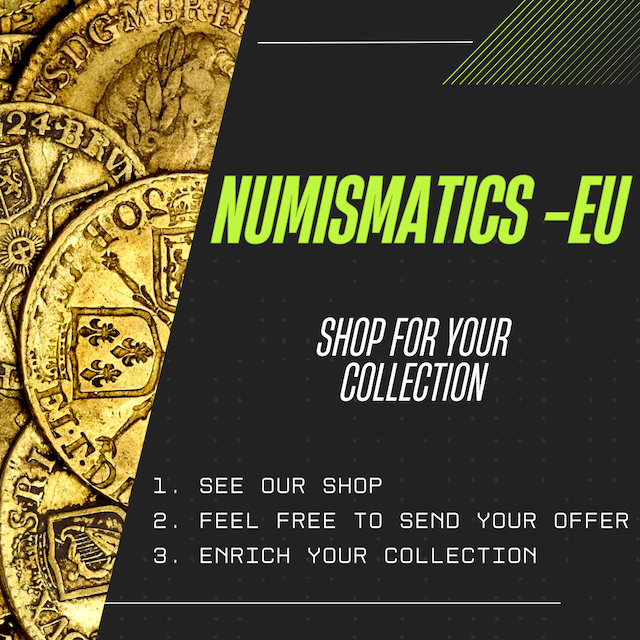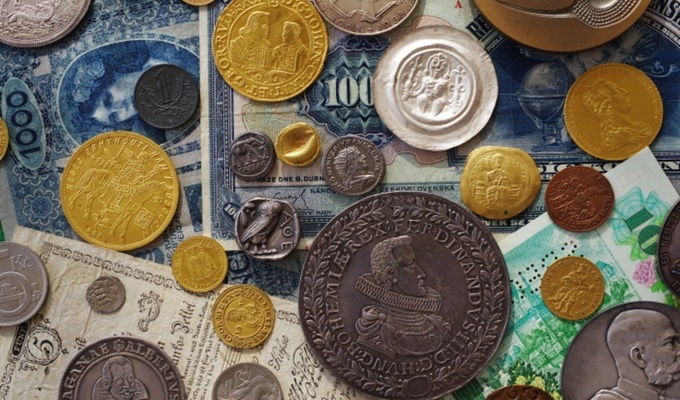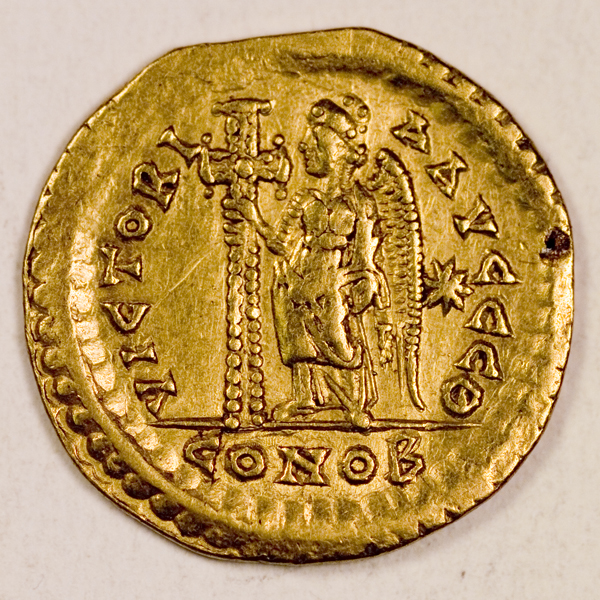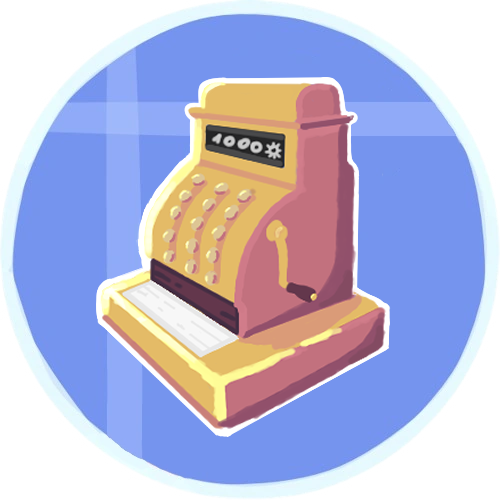Here's a method that can be structured: This is a methodological approach to choosing a database Choose a database which specializes in numismatics and historical information on coinage. Numista is a good choice for online catalogs of the major mints, such as the United States Mint and the Royal Mint. Or you could use databases from academic institutions that archive numismatic data.
Define Research Focus: Specify your research objectives. Are you interested the history of production, the volume of production, technological advancements, economic and cultural impacts, or any other aspect of a specific mint? Tailor your search queries accordingly.
Search Strategy: Use words that pertain to numismatics or mints (such as "mint history", "mint manufacturing", "coin production techniques") Include the name(s) of the mints and mints you are interested in. Utilize advanced search to filter results based on date, document type, and geographic region.
Data Collection: Collect data regarding the date of the establishment of the mint as well as the period of time that it has been operating for as well as the kinds of coins made and the minting techniques used (such as hand-striking or machine striking) and any significant instances or changes in methods of minting that have occurred over time. Catalogs or databases detailing the specific coins that were minted based on the date, denomination, style, etc.
Examine data to find patterns or trends in the minting practices of various historical periods and geographical locations. Examine the evolution of stylistic coins, changes to the composition of metals, and technological developments in minting techniques that could have influenced coin production.
Cross-Reference: Verify the accuracy of your research by comparing information from different sources in the database. It ensures that the research you conduct is thorough and correct.
Documentation. Keep track of your research results by citing sources, and jotting down the methods you employed. Record the databases used, the search words used and the importance each source has in relation to your research objectives.
Stay up-to-date: Numismatic research is constantly evolving as new discoveries and publications constantly coming out. You can stay current by visiting the database regularly to look for any new information or collections that have been digitized recently or recent articles.
Following these steps will allow you to effectively use databases to conduct comprehensive research on numismatics in relation to mints. This technique allows for a thorough analysis of the cultural, technological and historic aspects of production of coins. It provides valuable insights into the development of numismatic practices. View the top his response for blog tips including coin, banknote collection, proof, penny, euro, banknote printing, banknote identification, currency grading, lira, banknote storage and more.

What Can I Do With A Numismatics Database To Research Coin Dealers?
For numismatic research, it is crucial to use databases that provide information on dealer listings, market trends, historical transactions, and numismatic transactions. The following is a methodical approach for conducting this type of study Database Selection: Choose databases that are specialized in dealers' listings and numismatics. A few examples are numismatic on-line marketplaces, dealer directory offered by numismatic society (such as Professional Numismatists Guild), database of auction houses and historical archives.
Define Research Focus: Specify your research objectives. Are you looking to learn the historical background of dealers in coin or their profiles, understand the trends in the market for coins, how they have changed in price over time, and the impact dealers play on trends in collecting? Clarify the focus of your search.
Search Strategy: Make use of keywords such as "coin dealers,"” "numismatic marketplace," "dealer listings," as well as geographic regions or specific names of dealers when relevant. You can use advanced search features to filter results based on date, specialization of dealers (such as ancient, modern, and rare coins), or transaction type (auctions or private sales).
Data Collection: Access information on coin dealers such as their business names, locations, specialties, years of operation, and their historical profiles. Find information on notable dealers in the field. Learn more about their contribution to numismatic scholarship and collecting communities.
Analysis: Examine your data to discover the role that dealers in coin have in the world of numismatics. Find out how dealers impact market dynamics, impact collecting trends, authenticate, grade, and share knowledge about numismatics through educational and publication.
Cross-Referencing: Verify your research findings by cross-referencing information across numerous directories of dealers, databases auction records, as well as historical archives. This guarantees the accuracy and completeness of your research, and gives insight into the various role and contribution of coin dealers in numismatics.
Documentation: Document your findings systematically by citing sources and noting the methodologies you employed. Take note of the information in the databases you used, the search terms you searched with, and the way each one of them relates to your research question.
Stay Up-to-date: The numismatic market and dealer landscape evolve with new auctions, dealer entries, and market trends. Keep up-to-date with updates from numismatic organizations, auctioneers, and online markets for the latest developments and trends in numismatic trading and dealer activity.
By following these steps, you will be able to effectively use databases to explore numismatics in relation to coin dealers. This approach allows a comprehensive analysis of the historical profile as well as market influences and academic contributions to the numismatic field from coin dealers. Read the most popular good for banknote album for website advice including legal tender, banknote forum, ringgit, banknote album, quarter, design, coin planchet, gold, legal tender, coin die and more.

What Can I Do To Use An Online Database For Research On Numismatics In Relation To Historians And Researchers
Here's a systematic approach to conducting research in this manner: Database Selection: Choose databases that focus on numismatic research, historical archives and academic journals, and institutions' repositories. An organized approach is offered to aid you in your research. Examples are JSTOR, Google Scholar, journals of numismatic societies (like the American Numismatic Society), and university library databases.
Define Research Focus: Specify your research objectives. Do you want to know about the historical contexts behind the numismatic objects as well as the research methodologies used in numismatics? Are you interested in specific topics in numismatics that historians have explored or the work of researchers in the field of numismatics. Determine the goal of your search.
Search Strategy: Use words such as "numismatics," "numismatic research," "historical coins," and include particular historical periods, geographical regions or numismatic themes, if applicable. Advanced search options let you to search by date, type of document (such a articles, dissertations and conference papers) or the author's name.
Data Collection: Find information on scholarly research papers, articles, and historical archives related to Numismatics. Get details such as the names of authors, publication names, abstracts and methodologies as well as historical contexts. Look up databases for digital numismatic collections or research project access.
Analysis: Analyze and interpret the information in a way you are able to comprehend the methods used by researchers and historians in numismatics research. Examine how numismatic objects are a part of larger historical narratives. Compare the approaches and findings of different researchers across various topics in numismatics.
Cross-Referencing Verify results by cross-referencing data from various databases and academic journals. This ensures that your research is reliable and complete, giving you an accurate picture of research.
Documentation: Recording your findings is crucial. Note sources and the methods used. Keep track of the details such as the databases that you accessed, the search words you searched with, as well as how each source is related to your study.
Keep up to date: Numismatic publications and research continue to evolve. Stay up-to-date by following updates from numismatic societies and academic journals.
These steps will enable you to effectively use databases in order to explore numismatics from the perspectives of historians and researchers. This permits a thorough study of the techniques, historical interpretations, academic contributions, as well as the historical contexts that impact understanding of numismatic artifacts. See the top straight from the source on coin mold for website examples including gold coins, banknote appraisal, forint, czech coins, collection, numismatics, german coins, banknote value, coin authenticity, bullion coins and more.

How Can I Use A Numismatics Database To Access Online Forums And Communities To Conduct Research?
In order to research numismatics using online forums You will need to use platforms that allow collectors and fans to exchange knowledge, discuss trend and showcase their collections. This is a structured way to conduct this research. Examples include forums like CoinTalk Reddit's r/Coins and special numismatic communities that are on social media platforms such as Facebook groups and LinkedIn.
Define Research Focus: Specify your research objectives. Are you seeking to understand the current trends in collecting or to discuss specific kinds of coins, historical periods or seek advice about authenticity and the process of grading. Make sure you know what your goals are to help direct your search.
Search Strategy: Use relevant keywords that match your interests, such as "numismatic fora," "coin collector communities," and "online numismatic discussions," including specific topics or phrases (ancients coins, modern coins paper currency) related to your question. Search functions are available on each platform.
Data Collection: Participate in discussions, threads, and posts within online communities. Learn about methods of collecting, coins markets, trends in the market and personal experiences of coins and numismatic finds. Also, discuss various aspects of culture or history that are related to coinage.
Examine the data to discern opinions, expertise and experiences that are common among the online communities. You can determine the validity of the information by analyzing the experiences of contributors and the consensus around particular topics among the members.
Cross-Referencing. You can confirm your conclusions by comparing information in multiple forums. Review the information from various platforms to get a more comprehensive view of trends, market sentiments, and expert guidance within the numismatic community.
Documentation: Keeping track of your findings is essential. Note specific threads, discussion subjects, and contributors when required. Note the key trends, ideas, and the opinions of others that are posted in online forums.
Engage in Discussions: Participate in discussions, ask questions and join discussions to gain greater insight and build connections within the numismatic community. Stay updated with new threads, replies, and announcements to keep up-to-date with current trends and discussions.
Follow these steps to effectively utilize forums and online communities to conduct researching numismatics. This approach allows for you to benefit from a collective of knowledge and knowledge from a wide collection of experts and collectors. They will provide you with valuable insights and perspective on various aspects regarding coin collecting and identification. Follow the top rated central bank for blog tips including copyright, rupee, uncirculated, collector, coin news, bullion coins, uncirculated coins, coin mintmark, rare coins, coin auction and more.

How Can I Search Databases In Numismatics To Locate Networking Opportunities?
Investigating numismatics for networking possibilities involves using databases and platforms that allow connections among collectors, dealers researchers, scholars, and others within the numismatic community. A structured approach is provided to aid you in this type of research. Examples include numismatic sites, online discussion forums (such CoinTalk, Reddit’s Coins) and social media (such Facebook and LinkedIn) groups, and professional social networking platforms.
Determine your Research Focus. Specify Your Goals for Networking. Are you looking to connect with collectors and share knowledge and engage dealers to buy or sell items, work with researchers for research projects, or take part in numismatic conferences and events? Find out the purpose of your search in order to direct you.
Search strategy: Choose keywords that represent your interests, including "numismatics", "coin collectors forums" or "numismatic social networking groups". If appropriate you are able to include particular interests or geographical regions. Use search functionality within platforms to locate relevant forums, groups, and other events.
Data Collection: Access to information about the networking opportunities within numismatic communities. Get information on group descriptions and the benefits of being a member (such as events, discussions and other resources) as well as upcoming events (such auctions) as well as conventions (such as conventions), and profiles on influential people.
Analysis: Examine and pinpoint relevant opportunities and networking channels. Evaluation: Assess the level of engagement in groups and forums. Also, consider the range of participants (collectors/dealers as well as scholars), frequent updates and discussions, and potential for collaboration between academic and professional.
Cross-Reference Data: Confirm the information you discover by cross-referencing data from different databases, social media networks, professional networking platforms, and the websites of society for numismatics. You will be able to find numerous networking opportunities on different platforms.
Engagement: Join selected networks by actively participating by sharing insights or asking questions, and sharing your knowledge. Create connections with fellow dealers, collectors and scholars in order to expand your connections and share valuable numismatic knowledge.
Documentation. Record your networking activities by keeping track of the platforms, groups as well as the events and contacts you made. Keep track of your networking opportunities and results obtained.
Utilize these tips to use databases effectively to explore numismatics with regard to networking opportunities. With this method you will be able to expand your professional and personal network within numismatics. You will be in a position to facilitate collaborations, exchange of information, and participate in numismatic activities that enrich your knowledge. Follow the recommended coin catalog for blog examples including currency forum, banknote value, collector, coin book, coin, federal reserve, currency dealer, mint, coin authenticity, currency and more.
